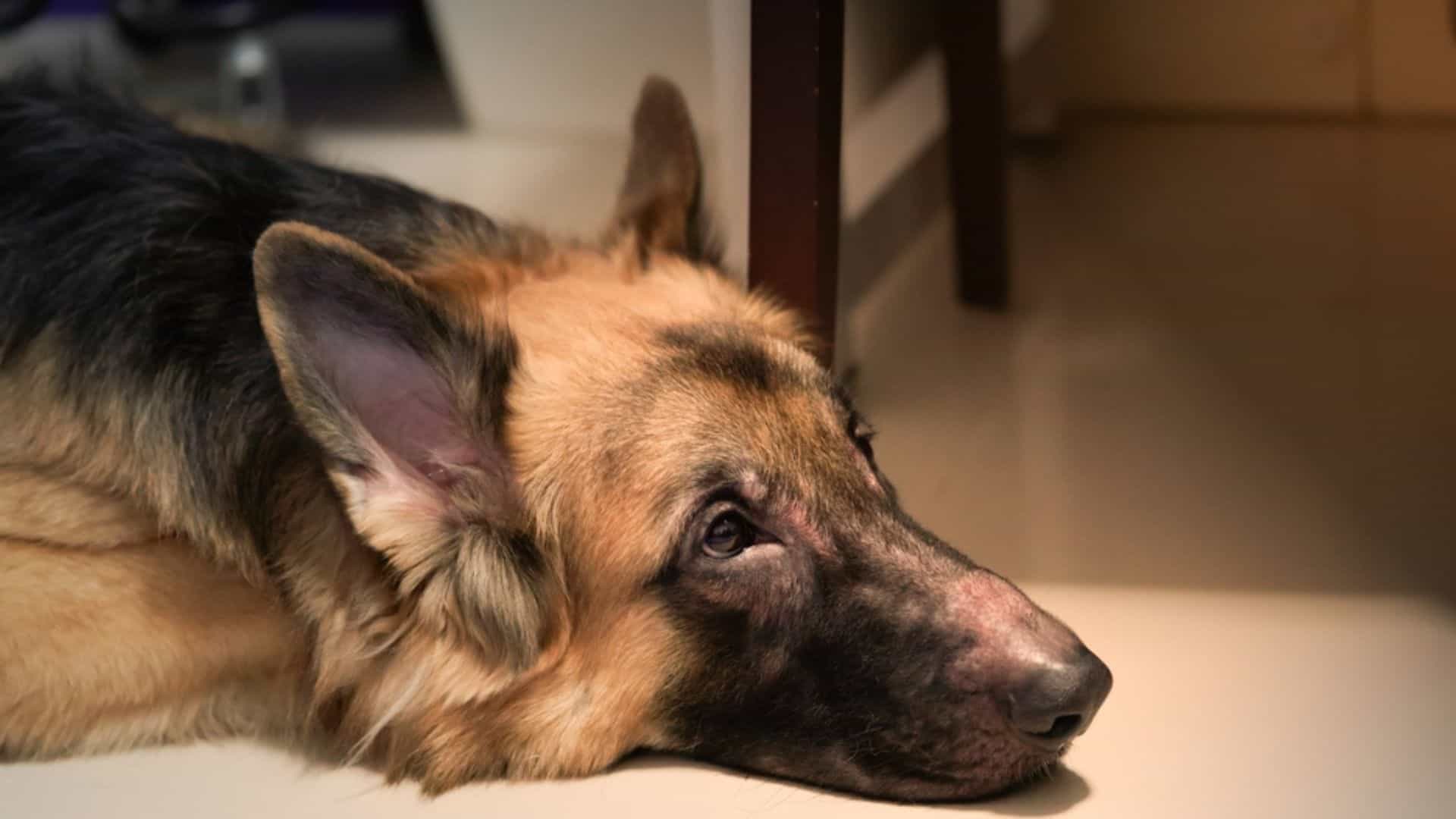My friend called me this morning and she was really worried. She noticed her three-year-old German Shepherd, Claus, starting to lose hair. He’s not shedding, nor is he in the season. She’s talking about chunks of hair missing from Claus’ coat, leaving bald patches.
Of course, she phoned their vet and they set up a checkup tomorrow morning. But, Lydia can’t stay calm for 24 hours. She said: better tell me what’s happening or I’ll go to Google and find out my dog has some kind of extinct disease!
I had to jump in and help her ease her mind. It’s not that simple to figure out why a GSD is suddenly losing hair.
There are a bunch of reasons behind hair loss, and we’ll cover the most common ones.
Let’s start before things get too hairy.
1. Allergic Reactions
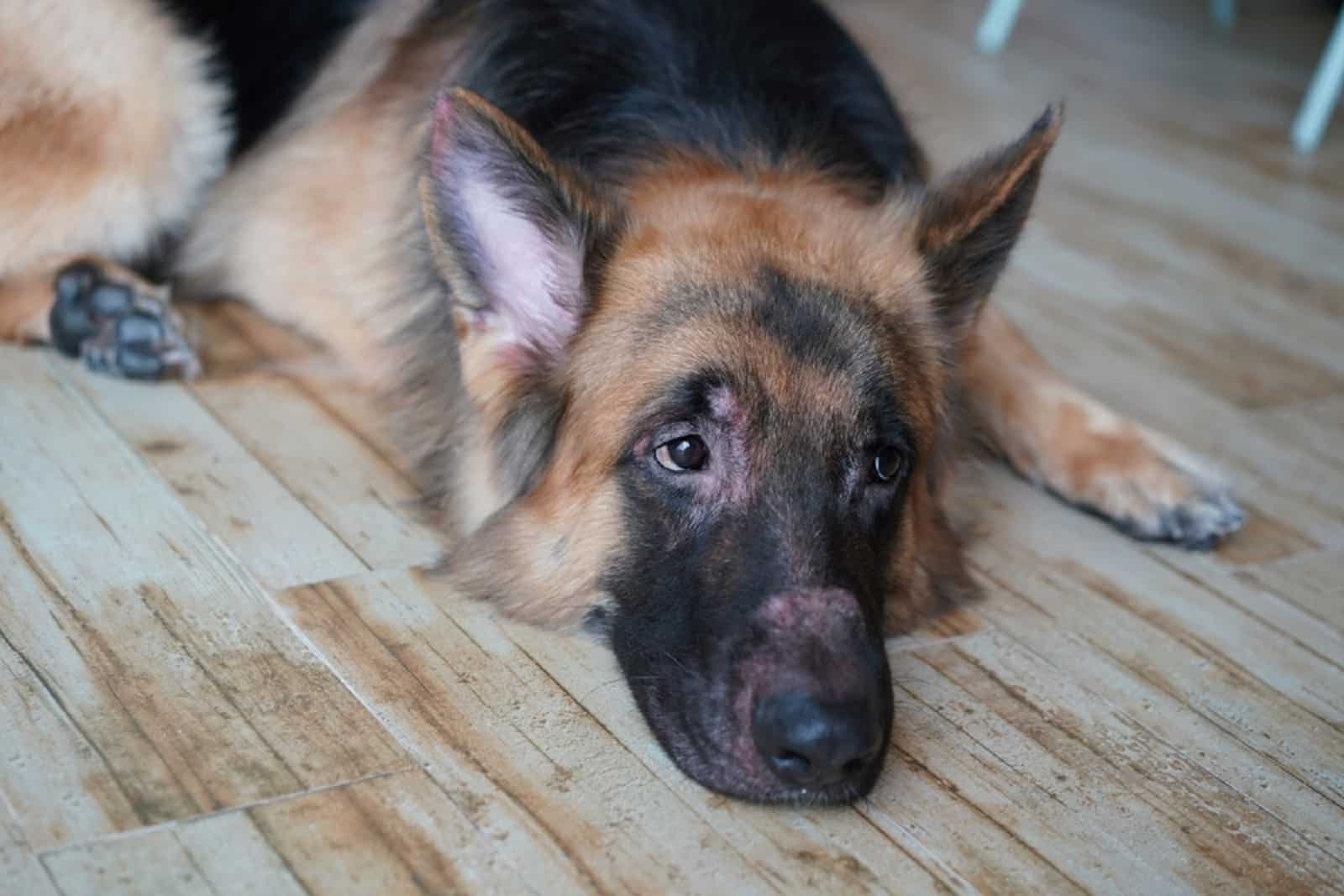
If it’s not the shedding season, and your German Shepherd is still losing hair excessively, then you can suspect allergic reactions are the reason behind it. In most cases, they really are.
But, allergic reactions are such a wide term! They can range from food-borne allergies to environmental, respiratory allergies, etc.
Usually, German Shepherds get food allergies. This dog breed is quite prone to reactions if their food contains a lot of grains. Sometimes, certain proteins, such as chicken and the steroids they’re sometimes fed can trigger allergies. |1|
However, don’t be surprised if your GSD gets reactions to pollen, mold, or dust. Those reactions are pretty standard, too.
You can easily spot an allergic reaction if your dog has had other symptoms such as itchiness, swelling, redness of the skin, dryness, and constant licking of the affected area.
2. Bacterial Or Fungal Infections
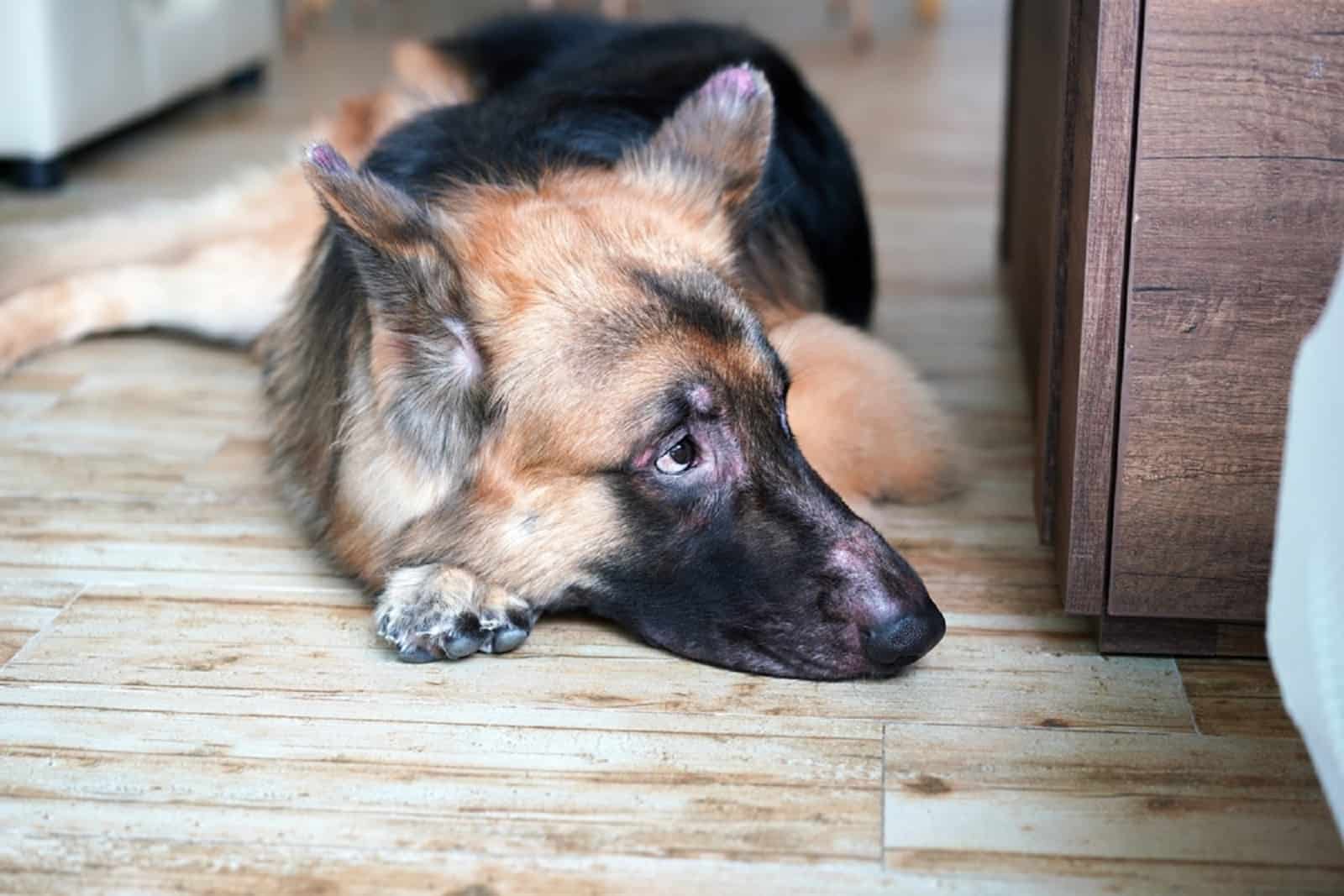
Irritated and red skin that seems to itch all the time?
Red or brown patches on the skin where the hair is missing?
Terrible odor coming from your dog’s skin surface?
Yep, those are infections caused by bacteria or fungi!
Ringworm is the most common pest that causes fungal infections with dogs. |2|
I’m sorry, but you shouldn’t even try to treat such infections alone at home. Rush to the vet if you notice these symptoms!
3. Parasitic Infections
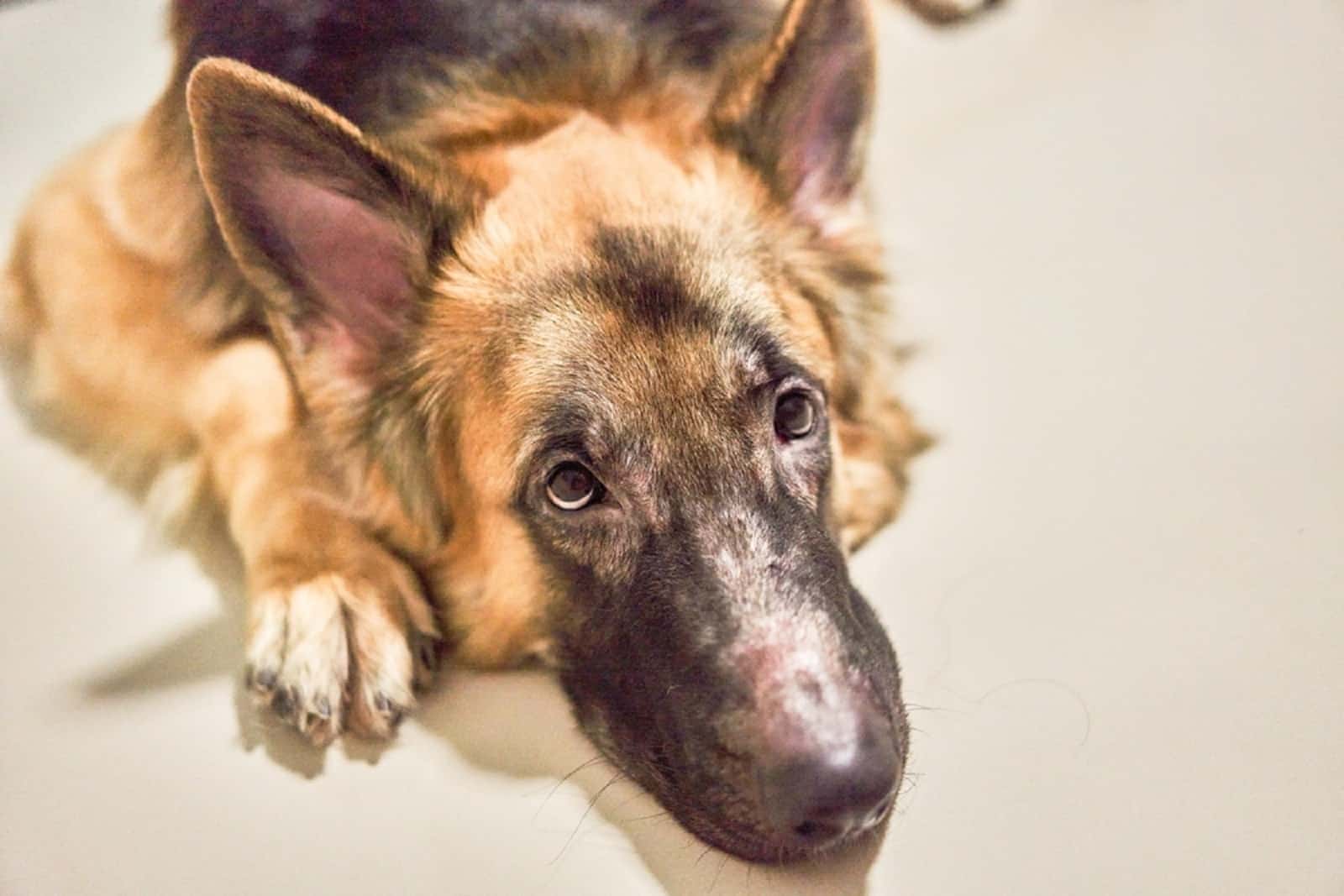
Fleas. Mites. Ticks.
We hate them all!
Those nasty pests are super hard to get rid of no matter how well we take care of our dogs.
Constant itchiness and scratching is an obvious sign your dog is dealing with fleas or mites, sometimes even ticks. In such cases, baths are in order, as well as a visit to the vet who will prescribe pills so they don’t catch any parasites, i.e., anti-tick pills.
Of all the listed parasites, fleas are somewhat the least dangerous. But, if your dog has mites, especially demodex mites, it can turn into quite a problem. Those mites lead to a condition called demodectic mange, and it can be contagious. |3|
4. Stress
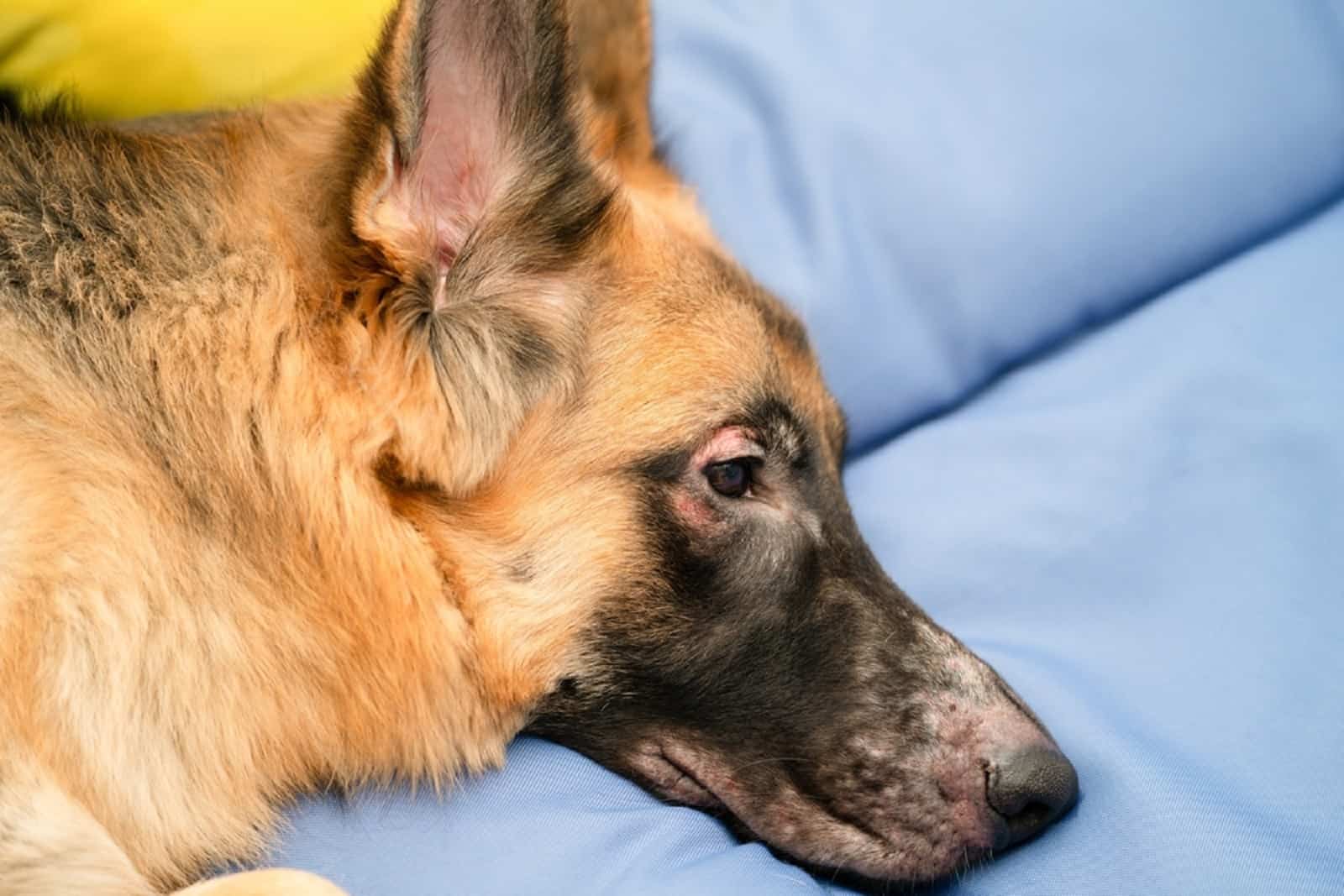
Oh, stress as a common factor for all kinds of health problems becomes pretty obvious. Seems like everyone these days is under a lot of stress, including our canine friends.
What can I say? Anything could cause stress with dogs, even the slightest change! Did you change your living arrangement? Did you bring someone new into their life? Did you move, maybe change their food or treats?
German Shepherds are sensitive despite their tough appearances. Even the tiniest change could make them lose it.
5. Hormonal Changes
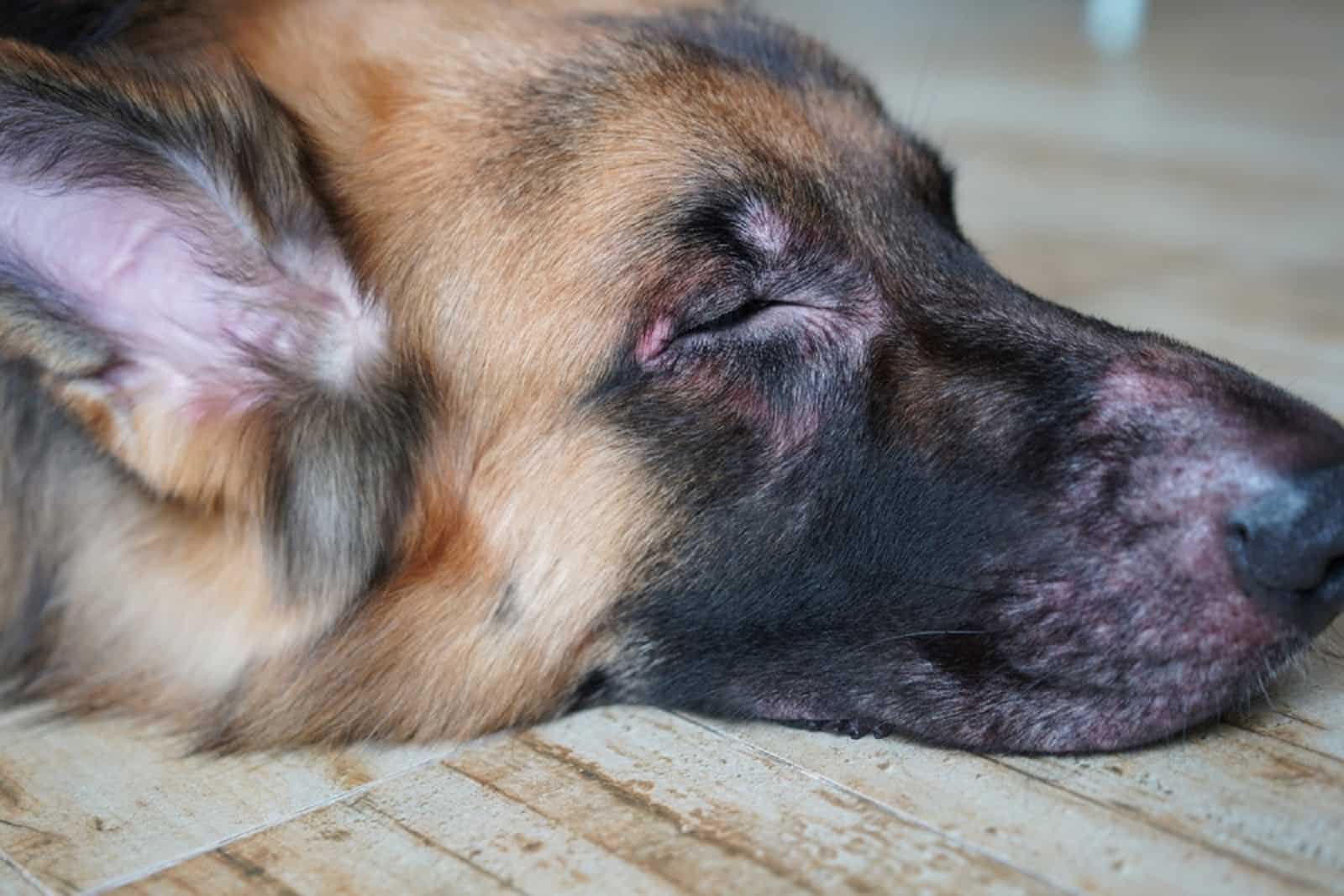
Sadly, German Shepherds can develop issues with their thyroid and adrenal glands. Those conditions must be diagnosed by a vet before giving your dog any sort of therapy.
If your German Shepherd suffers from health problems like hypothyroidism, that can be the reason behind its hair loss. Hypothyroidism causes a bunch of issues and messes up the dog’s entire wellbeing. |4|
Meds and dietary changes are in order or else your dog will start losing more hair, become obese, lack energy to do anything, etc.
6. Lack Of Nutrients
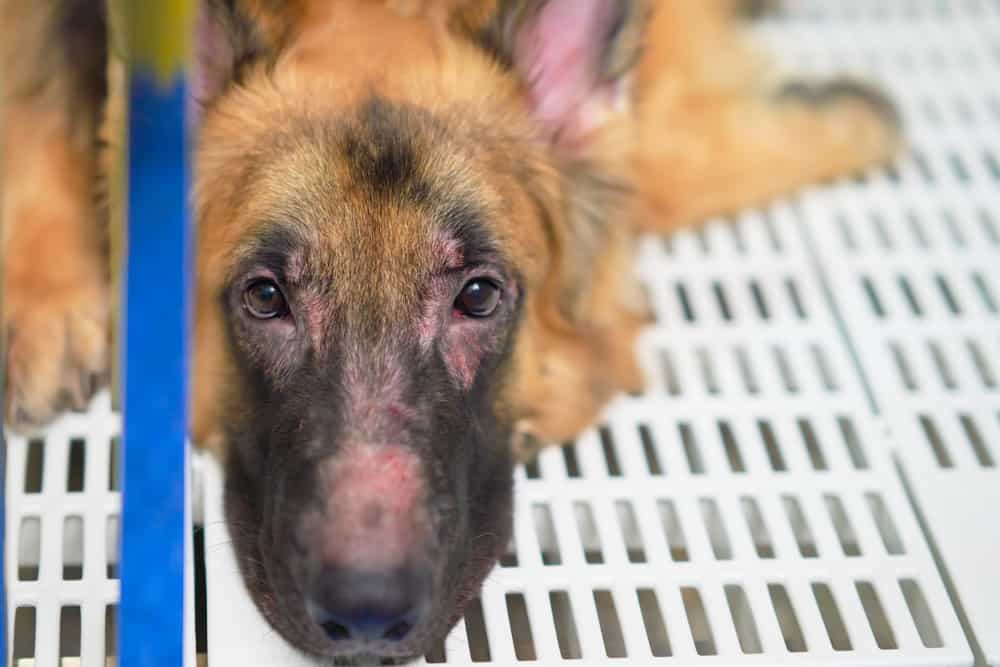
I’m not saying my friend, Lydia, isn’t feeding her dog good dog food, but still… Formulas change, ingredients may lack in one of the kibble batches, something might be going on inside the dog that requires additional nutrients, and there you have it.
Lack of nutrients is another popular reason why dogs lose patches of hair all of a sudden.
Goodies like vitamins, minerals, keratin, and amino acids are the first suspects if you think your dog is lacking nutrients. In this case, you either switch to a premium formula or ask your vet to prescribe some supplements that will increase the quality of your dog’s coat.
7. Severe Illnesses
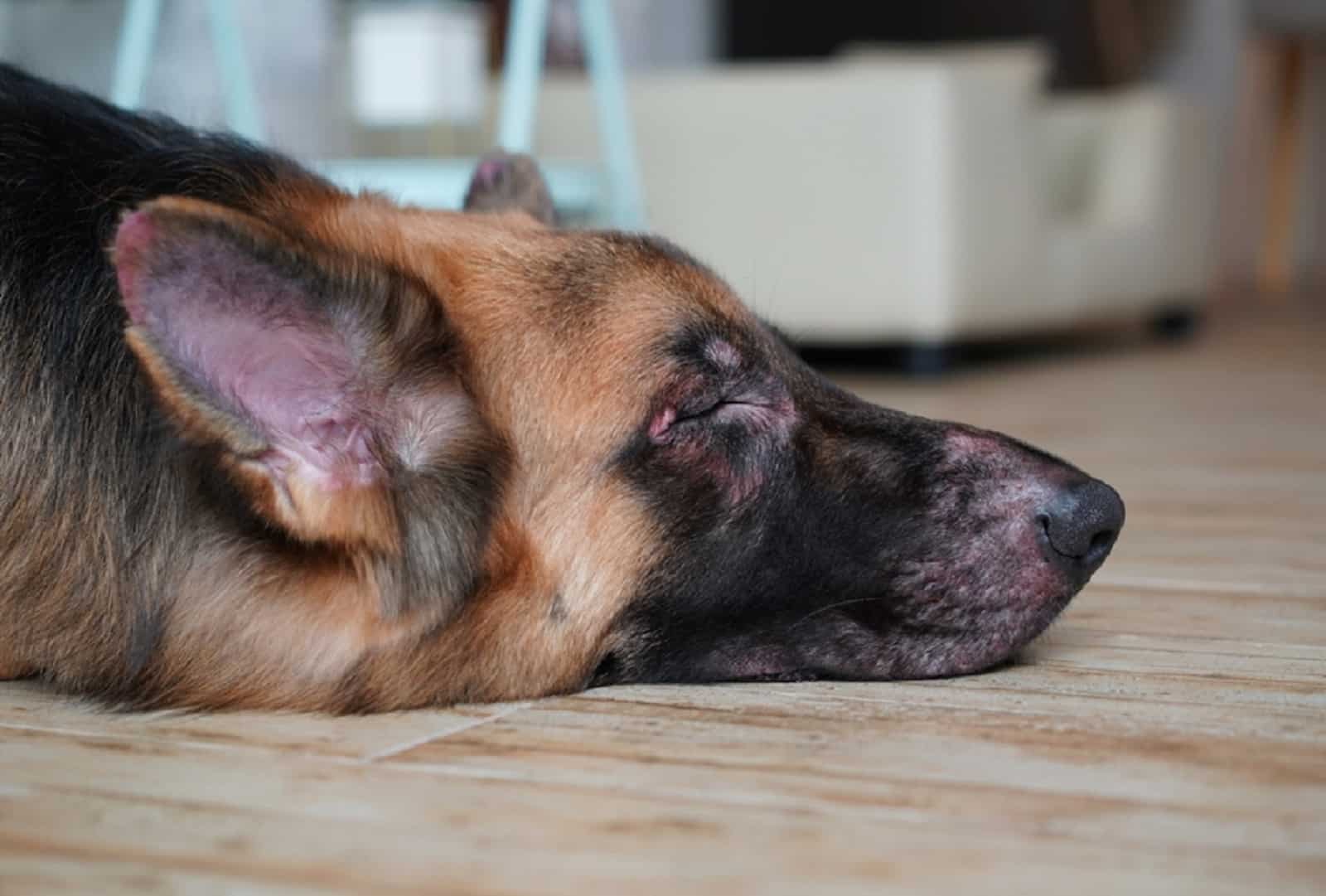
Lastly, a reason we all dread. Severe illnesses.
Nobody wants to hear their dog might be suffering from a life-threatening illness, but that’s sometimes the case behind sudden shedding.
For example, some cancer forms are characterized by hair loss, as well as autoimmune diseases, and other conditions such as kidney failure or Cushing’s Disease.
If everything else I mentioned checks out fine, and your dog isn’t allergic, under stress, lacking nutrients, or under infections, it might be time to run some further tests. It’s not only about your dog’s coat; it’s about its health!
A healthy dog is a happy dog, and only a happy dog means a happy hooman!
DISCLAIMER: As much as I’d want to help you, I’m not your dog’s vet. I can give you general insight into what’s causing the hair loss, and help you figure out what your dog’s having. However, for any additional help, advice, or treatment, you should consult your vet.
No one could tell you online what’s wrong with your dog, the exact diagnosis, and the right treatment. That’s why we have vets… our friends in need!
Sources:
|1| Rakshanda Bhagat, Amir Amin Sheikh, VS Wazir, Aditya Mishra and Uttarani Maibam. Food allergy in canines: A review. 2017. DOI
2| A.I. Wright. Ringworm in dogs and cats. 1989. DOI
|3| K.P. Baker. Observations on Demodectic Mange in Dogs. 1968. DOI
|4| D.L. Panciera. Hypothyroidism in dogs: 66 cases (1987-1992). 1994. DOI
